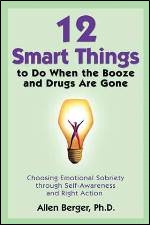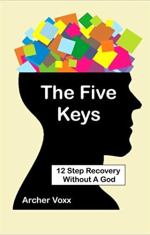You Will Burn in Hell

by Archer Voxx
For the purpose of this article, let’s use a metaphor for our thinking process. The metaphor is that our brain is like a computer’s CPU and that it has an operating system. That operating system is running several important software applications (apps) in the background that provide us with, among other things, our ability to navigate life. An early software application that is installed in you, by parents and other influential parties, provides you the processes and rules you will use to determine if you are a Good Person. I will refer to this as the Good Person software going forward.
The processes and rules can vary significantly, depending on the version of Good Person that your loved ones install in you. Some versions provide a better foundation for a balanced life driven by sound personal values, effective decision-making, and the resulting serenity. On the other end of the spectrum, there are versions of the software that set you off on a life of self doubt, poor self-esteem, and discontent. It is these versions of the software that I believe help contribute to the development of addiction to substances and activities (including codependency) as coping mechanisms. Of course, there are variations on the Good Person software on the continuum between these extremes that I just described.
The initial installation of the Good Person software in you is a very challenging process for parents and loved ones. Historically, one of the popular options has been to use pre-packaged, off-the-shelf software that they acquire from an organized religion store. My parents, who were well-intentioned, loving people, elected to use the pre-packaged software option. The software package they installed came from the Lutheran Store.
Like many of the off-the-shelf models of the Good Person software, the Lutheran package comes with standard judgment and fate modules. The judgment module monitors your Good Person progress and the fate module determines your afterlife dispensation. The judgment module in the Lutheran package comes with an invisible-all-powerful-being who monitors your progress. The fate module implements the final decision of the invisible-entity. The fate option is binary. YES – Good Person – You are sent for eternity to a place with fluffy clouds, happy people, and an endless supply of great action videos. NO – Not A Good Person – You are dispatched to a place filled with bubbling lava and tormented for eternity along with millions of other screaming, sorry-assed, sons-of-bitches. In other words, “You Will Burn in Hell”.
As time passes, observant and rational people will make modifications to their off-the-shelf, “Burn in Hell”, versions of the software to make it fit more with reality. The first major update to the pre-packaged Good Person software usually involves swapping out the invisible-all-knowing-entity-who-keeps-an-eye-on-everyone-at-the-same-time with a new, less metaphysical and more tangible group of judges. This updated panel is called SOCIETY. This judgment panel consists of parents, friends, teachers, business associates, casual acquaintances, the media, and the list goes on. The new panel has some distinct advantages over the invisible-entity because you can see them, interact with them, and get information directly from them. Unfortunately, with this software update, you don’t redefine the role of the new panel. You simply allow the new panel to have the same power as the all-mighty-invisible entity. That is, to monitor your Good Person status and to determine your fate.
Based on your day-to-day interactions with various members of this society-based panel, you try to determine your Good Person status. You look for positive and negative signals from all those you encounter; hoping that you will receive some Good Person vibes and fearing potential negative indicators that suggest you are gradually being relegated to the bottom of the human-being stack. This is the fate that has replaced the eternal-burning-lava-pit in your software update.
With this latest update to the Good Person software, a person now has some world-class, stinking-thinking going on. Why?
-
First, the new, society-based panel of judges is completely unaware that they have the Good Person review and final judgment responsibilities. Thus, output from the panel members to you is usually just circumstantial and without any “evaluation” of you in mind.
-
In your interactions with the new panel members, and even though you only perceive that they are performing an assessment of you, you continue to look for signs of positive and negative feedback. Their praise is infrequent, so you begin to view any that you do receive as disingenuous. You don’t hear much in the way of criticism, so you begin to view any criticism directed toward you as being strong signals of losing your Good Person status.
-
Last, you begin to interpret any silence from the panel as subtle signals that they are withholding opinion, “bad news”, from you and you obsess about the pending report cards.
Bill Wilson, one of the founders of Alcoholics Anonymous, described this unhealthy dependency on others in a brilliant, short article he wrote for the AA Grapevine magazine in 1958. The article was called The Next Frontier – Emotional Sobriety. Paraphrasing from this article, Bill said the following:
I think that many of us who have used the AA program successfully, still find they often lack emotional sobriety. Perhaps this can be the next major development in AA – the development of much more real emotional maturity and balance in our relations with ourselves and our fellows. I realized that my basic flaw has always been dependence – almost absolute dependence – on people or circumstances to supply me with prestige, security, and the like.
Failing to get these things according to my perfectionist dreams and specifications – I fought for them – and when defeat came – so did depression. If we examine every disturbance, big or small, we will find at the root of it some unhealthy dependency and our related unhealthy demands.
This article by Bill Wilson is insightful and motivational for me. As a person in recovery, the real challenge has been maintaining an awareness that I might have an unhealthy dependency on people (the panel), places, and things for my Good Person status.
I have made it part of my recovery mission to understand this aspect of my thinking process and to make changes to ensure that I am moving toward having the improved version of the software installed – the Serenity Model that uses the Emotional Sobriety algorithm. The benefits of making these changes have been significant for me.
 Emotional sobriety is an area that I would recommend some exploration for the purpose of taking your personal recovery to the next level.
Emotional sobriety is an area that I would recommend some exploration for the purpose of taking your personal recovery to the next level.
My favorite book about emotional sobriety is by Dr. Allen Berger. The book is called 12 Smart Things to Do When the Booze and Drugs Are Gone: Choosing Emotional Sobriety Through Self-Awareness and Right Action.
 Archer Voxx is an author and public speaker in the recovery community. He has written two books:
Archer Voxx is an author and public speaker in the recovery community. He has written two books:
The Five Keys – 12 Step Recovery Without a God – This short book, previously discussed here on AA Agnostica, provides insight into five key areas of Alcoholics Anonymous that are rarely discussed. Armed with this information, a person with a secular background can work the program without a Judeo/Christian-based higher power, without a God.
 Alcoholics Anonymous Universal Edition – The Universal Edition consists of key chapters of Alcoholics Anonymous (“The Big Book”) that have been revised and modified to remove the “religious” content; while leaving the other original content intact.
Alcoholics Anonymous Universal Edition – The Universal Edition consists of key chapters of Alcoholics Anonymous (“The Big Book”) that have been revised and modified to remove the “religious” content; while leaving the other original content intact.
Both of the books are outstanding and important resources for agnostics, atheists and freethinkers in recovery.

























Hey Archer, I’m not too sure at times if the written word is conveying a sense of humour or meant to be profoundly serious. It has gotten me in trouble before on FB!! In this case, I’m swaying towards the ‘humour’. But I tend to like the humorous. I get the ‘emotional recovery’ part but after years and volumes of ‘recovery/self-help’ books, I’ve just about heard it all from ‘inter/intra-dependent’, to toxic parenting, to boundaries, to hundreds of other ‘recovery’ sound bites, and best of all surely, the many many uses of ‘spiritual’ in respect of our clay footed human condition and even as a remedy for addiction. I’ve done the talking and the walking in my ‘journey’ and explored most things about ‘me’, even to the point of taking a pick axe and miners helmet and getting right up my own backside!! As my friend Dante says: ‘it’s hard to get a drink when your heads firmly up your own arse!’ I did enjoy your article. I’m glad to say though that I’m really not too bothered about ‘me’ these days, nor my emotions, nor what others think of me, or of what I think they think of me. I think it’s safe to say I’ve deconstructed my old frame of reference and am content today to use Katie Mac’s Billy Connolly post from today on the Coffee Shop. I used to sit in ACA meetings when the ‘around the room’ opening was a ‘feelings check’. I always started with ‘My name is Harry and I’m an ACA and I THINK I FEEL ….’ Whatever it was I thought I felt. I always ‘thought’ back then, lived from the neck up. Today, I feel quite free, free to be me. I don’t apologise today for being me, it’s who I am and expressing myself as I choose; without a lot of editing before expression, being spontaneous feels good these days, not fearful. Thanks Archer.
Thanks so much Arthur for this article and Roger for posting it. I’m forever grateful that I received the gift of sobriety in New York City in the late fall of 1972 where most meetings focused on 1) don’t pick up no matter what, 2) go to meetings, and 3) help others when you can. I’ve been sober ever since.
Thank you for sharing your thoughts Harry. Good stuff! “Being free to be me is a great concept”.
Hmm, Archer, at least in hell it’s warm. Seems like I’m always cold these days, and I keep worrying about how all they’re going to give you to wear in heaven is a sheet, and I’m going to freeze my ass off up there. And then the harp stuff. I mean, I like harp, Moz has composed a couple of nice pieces, but up there you’re going to have plumbers and brickplayers playing harp, even a rare accountant or lawyer, and unless they give ’em lessons it’s going to sound awful. Hopefully they will at least quit by 11. Or are we not supposed to sleep anyway? And as Rowan Atkinson reminds us, eternity is one heck of a long time. It’s all really confusing, and doesn’t sound the least bit attractive. And I have the Lutheran version too. Lots of guilt and shame. No self esteem. Need to be humble before not only god, but everyone else too. Personally I think they’re lying about hell, just to get you to submit to their fan club. I imagine hell as a place where I can drink without hangovers, have indiscriminate sex without fear of VD, and otherwise, just kick back by the fire pit, live a life free from consequences from my actions, and none the least, free from interference by the god fans. Now, what’s wrong with that? But other than that I’m thinking maybe we’ve been getting a bit goofy lately.
Thanks Archer for the article. I have had a copy of the Alan Berger book since earliest sobriety. For me “emotional sobriety” is the name of the game. To be “sober” is to be well balanced in the emotional sense. I believe that emotions are the main drivers of human behavior and intellect mostly lags behind and tries to explain and rationalise what just happened. Emotional sobriety allows healthy relationships and they are the basis for a good life.
Thank you, Archer, for your imaginative piece that gets to the heart of the subject of emotional recovery. The literary critic, Northrop Frye, once wrote that an unsuspected recovery from whatever ails us often occurs “when an imaginative effort meets with an imaginative response.”
Your imaginative response here in this essay to what may be taken to be AA’s prior imaginative effort to help others find a solution to alcoholism adds one more perspective to the wider recovery process, both in terms of physical as well as emotional sobriety.
Unfortunately for me, my parents installed the “Evangelical Baptist” version of the software. With this version, updates install ever more judgemental and fearful outcomes. It took years and a reboot to the “Humanist “ version, together with more years of AA fellowship to even approach emotional sobriety. Thanks for the insightful essay.
Thanks to all of you for your kind remarks and for sharing your thoughts regarding the article.
Thank you, Archer for this pleasant presentation. I like the concept of emotional sobriety which to me means staying in reality as much as possible. I find myself when drifting into excessive worry to just stop and ask myself, “what are the facts?”, “what is happening now?” Those two questions will often quiet me down, take a breath and stay attached to the moment.